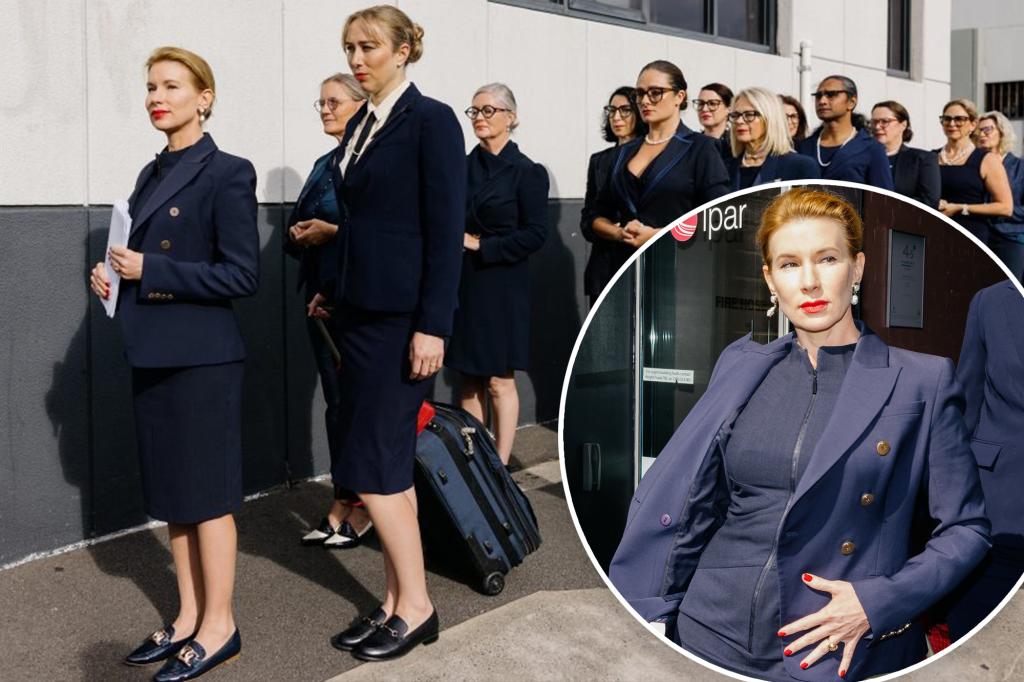An exhibit at Tasmania’s Museum of Old and New Art (MONA) called “Ladies Lounge” has sparked controversy after a man was denied entry, leading to a formal complaint. The exhibit, created by artist Kirsha Kaechele, is a high-end experience meant exclusively for women, inspired by Kaechele’s great-grandmother who hosted lavish ladies-only parties. A visitor named Jason Lau was denied entry to the exhibit, despite having paid for a ticket, and filed a complaint with the local anti-discrimination commissioner, which led to a court hearing.
During the court hearing, Kaechele made a visual statement by arriving with a group of women dressed in matching outfits and engaging in a choreographed routine throughout the proceedings. Kaechele defended the exhibit as a sanctuary for women, addressing historical exclusion and imbalance in artistic representation. Lau argued that as a ticket holder, he should have been granted access to the exhibit or offered a refund. The museum’s lawyer, Catherine Scott, argued that the exhibit is protected by Tasmania’s Anti-Discrimination Act, allowing for programs that promote equal opportunity for disadvantaged groups.
The debate over the “Ladies Lounge” exhibit continued in court, with Lau insisting that men should either be allowed entry or charged a different price. Scott highlighted the long history of discrimination against women, pointing out that it wasn’t until 1965 that Australian women won the right to drink in a public bar. She argued that part of the experience of the exhibit is being denied something that is desired, emphasizing the importance of addressing historical inequalities. The artist and her supporters left the hearing with a synchronized dance to a popular song, emphasizing their commitment to the exhibit’s message.
According to Kaechele, the Ladies Lounge is a space exclusively for women, with male butlers serving and attending to their needs as an act of chivalry. She believes that such spaces are essential for women to escape the male-dominated world and find perspective and reset. Kaechele argues that there should be more spaces like the Ladies Lounge where women can retreat and enjoy the company of other women. The case is currently under review, and Deputy President Grueber is expected to announce a decision in the coming days.
The controversy surrounding the “Ladies Lounge” exhibit at MONA highlights broader issues of gender discrimination and representation in the art world. While some argue that the exhibit promotes equality and addresses historical imbalances, others believe that denying entry to men is discriminatory. The case has sparked discussions about the importance of creating spaces for women to feel safe and empowered, as well as the need to address systemic gender inequalities. Ultimately, the decision in this case will have implications for how museums and art spaces handle issues of inclusivity and representation moving forward.


